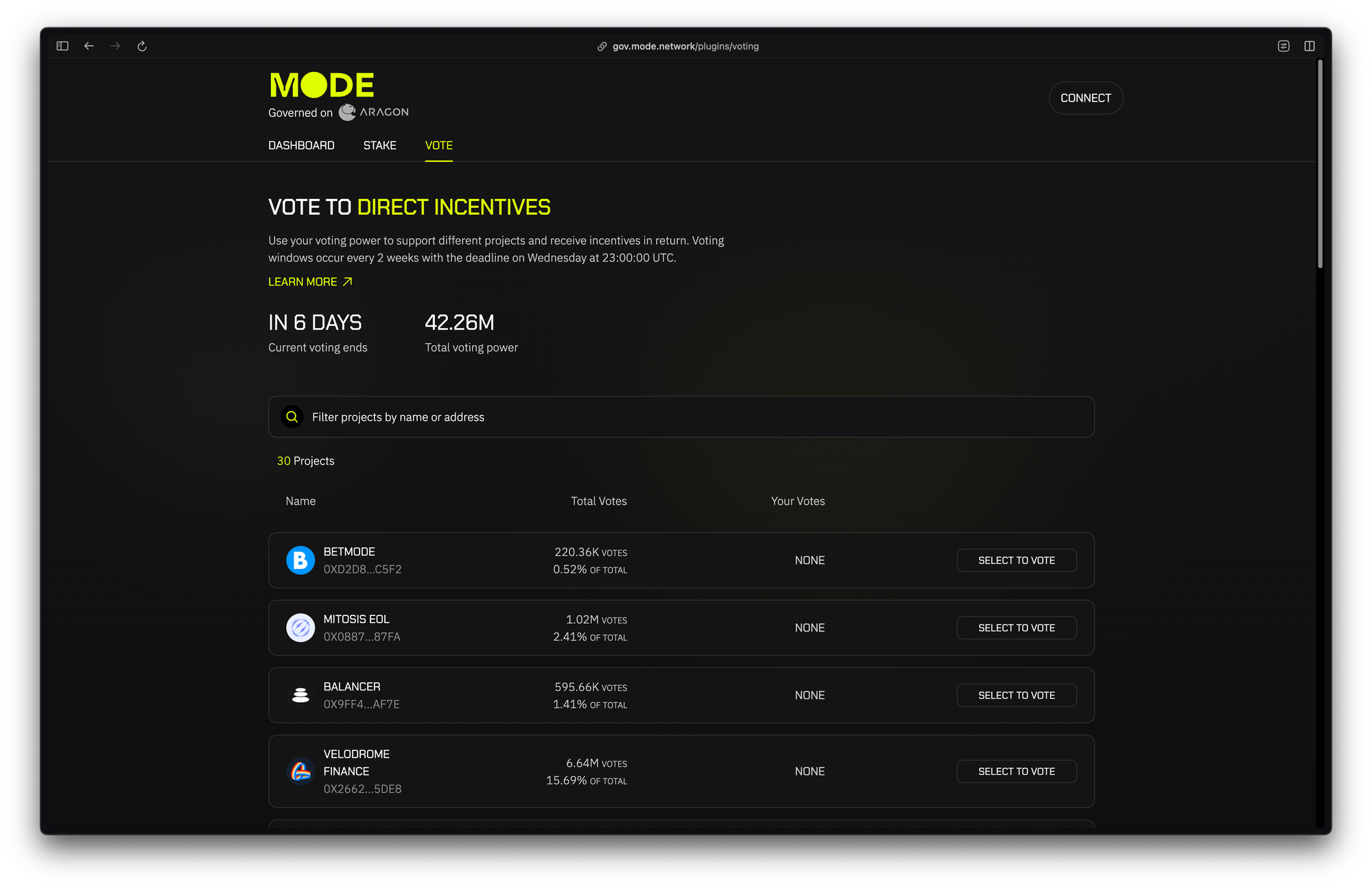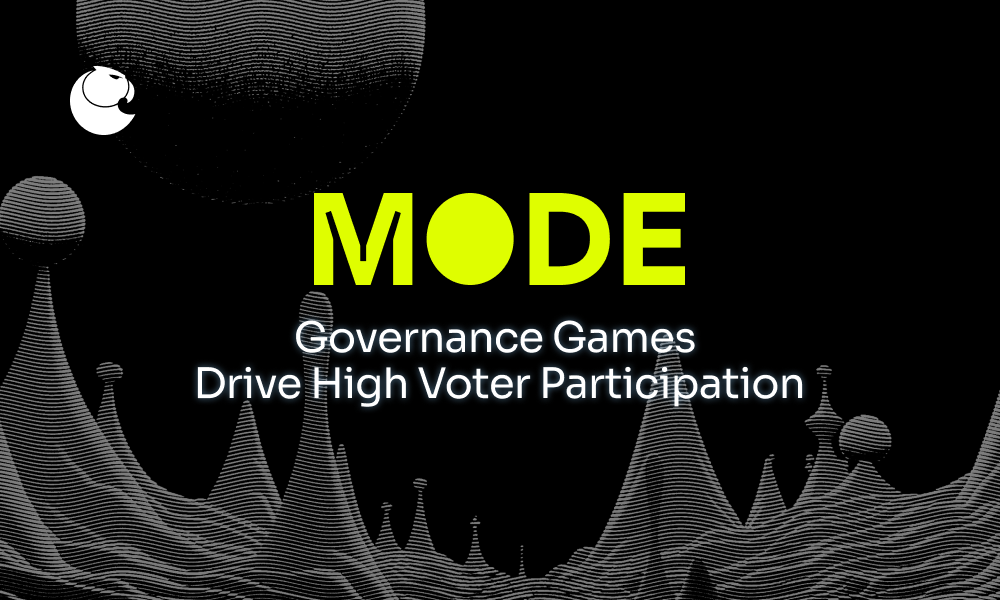Mode becomes the first L2 to introduce vote guarantee (ve) and metric-based governance to its ecosystem – modernizing a long-standing governance model implemented by successful DeFi protocols. In the third season, Governance games Incentivize community members to stake tokens to increase voting power, and drive rewards to protocols across scales. The results are exciting:
- 43% From the circulation of the mortgaged offer
- 7.6k+ Participate unique voters
- 31k+ Votes cast via measuring devices
Here’s how Mode addresses persistent challenges in L2 governance to achieve high participation rates:
Token-based delegate voting – a shared on-chain governance model for L2s – faces significant challenges:
- The wrong incentives: Delegates often lead governance decisions but may not have enough “game experience,” which can lead to potential conflicts with creators and token holders.
- Top format: Achieving quorum and approval thresholds requires repeated and time-consuming votes across many proposals.
- Low engagement: Voter fatigue causes most token holders and many delegates to withdraw, leading to low turnout rates, failed proposals, and a lack of accountability.
These issues limit the effectiveness of governance decisions and discourage broad community participation, thus undermining alignment among stakeholders.
To address the challenges of traditional onchain governance, Mode introduced a A modern, measurement-based governance model– Drawing inspiration from DeFi governance, lessons learned from past seasons, and working alongside experts from Aragon, Balancer and Aura.
At the core of this model: community members share tokens for voting power (represented by veTokens), which they can assign to metering devices. Metrics determine how rewards are distributed across protocols in the network. This design eliminates the need for continuous voting while providing flexibility for voters to reallocate their powers each term.
Mode implementation is integrated Unique features To adapt the governance model to the needs of their community:
- Flexible voting with linear curve: Voting power increases linearly the longer the tokens are staked. However, there are no mandatory lock-outs – token holders can participate or un-stake at any time, subject to warm-up and cool-down periods.
- Double staking: Both MODE and BPT (Balancer pool tokens 80/20 MODE-ETH) can be staked. This opens the door to dual governance incentives, enabling dynamic voting power for multiple stakeholder groups.
- Protocol-centric rewards: Instead of directing rewards to liquidity pools, stakeholders allocate voting power to protocols across scales, stimulating ecosystem growth.
- Governance Centre: A streamlined hub where community members can participate, vote and claim rewards, simplifying the management process for all participants.
Both veMODE incentives and protocols adapt from season to season, keeping governance responsive and adaptable to ecosystem and market dynamics.
The situation based his judgment on him Aragon OSXa standardized DAO framework that enables secure and customizable governance solutions.
Contracts Library
To simplify complex implementations of the Five Governance, the Aragon team built a modular node library, allowing Mode to customize key parameters efficiently and securely, without having to rely on resources from their development team.
The architecture includes a main contract that acts as a controller, managing the main logic for storage and non-mounting while communicating with child contracts that handle specific components:
- NFT logic: Each share is represented as an NFT.
- Curve logic: Manages linear or dynamic guarantee logic in Solidity.
- Clock logic: Defines eras, checkpoints, and timing mechanisms.
- Queue logic: Supervises exit queues and conditions.
- Voting logic: Links the five symbols to management mechanisms.

Metrics Governance Plugin
The mod used the Aragon OSx plug-in architecture to deploy the metric-based management system. The plugin allows veToken holders to customize their voting power to a pre-defined list of metrics, setting a percentage of their voting power to direct rewards to protocols. Once voting power is allocated, there is no need for duplicate votes, as their holders simply reallocate as needed at the beginning of each era.
The modularity of Aragon OSx allows the mode to adapt to learning. Plugins can be installed, updated or removed as the community and ecosystem evolves. This flexibility is crucial to managing seasonality, as lessons learned from one season shape the next.
Aragon OSx enables innovation in governance through a secure, modular framework. By dividing five contracts into modules, Aragon makes it easier for projects to customize governance models to fit their ecosystems and communities.
Do you want to implement a custom form for your project? Contact here.
